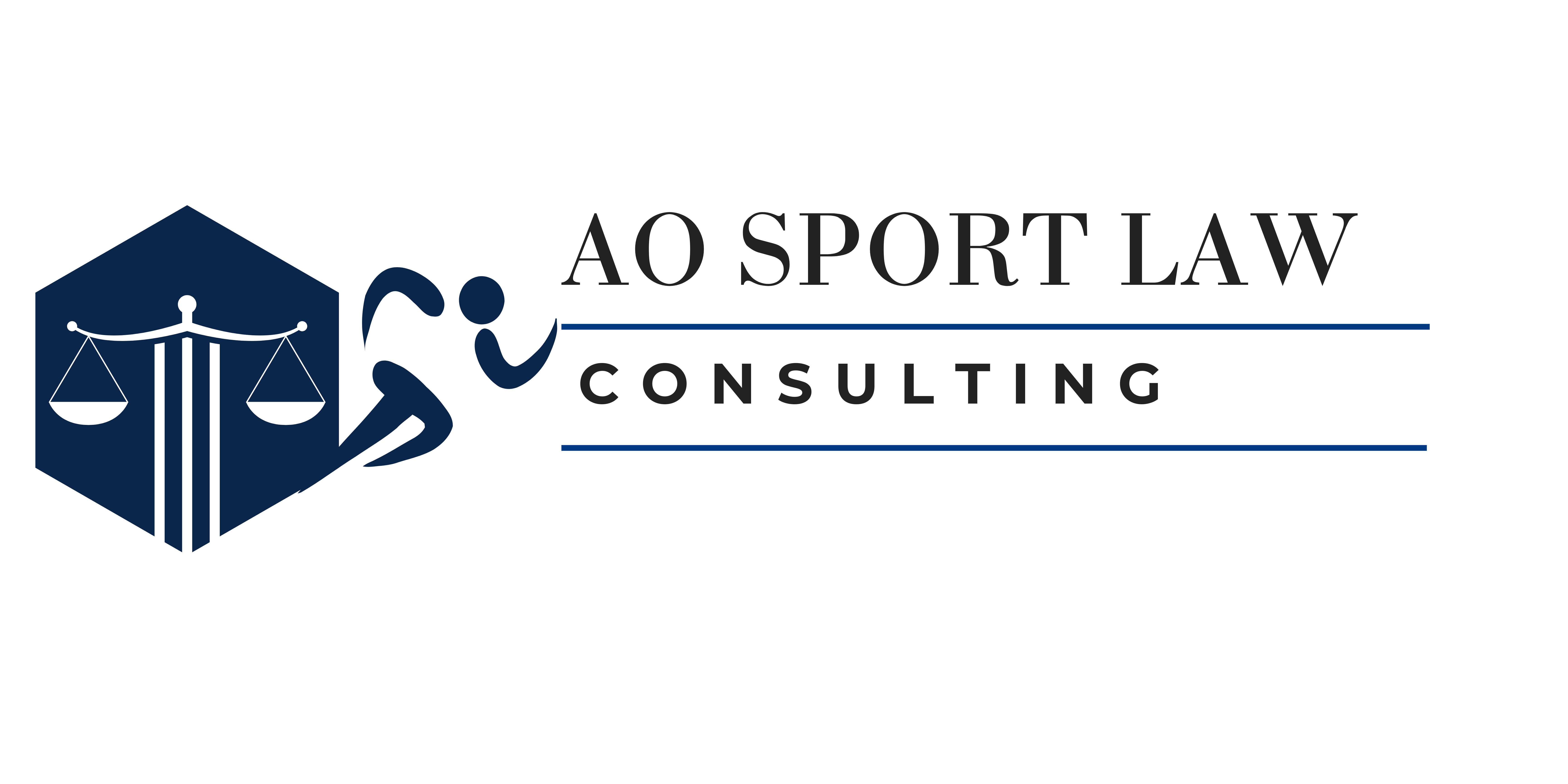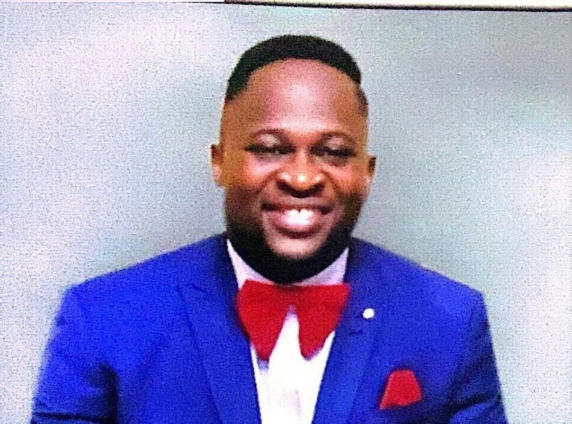by Segun Adebayo February 29, 2024 in Nigerian Sports, Top Stories
International legal practitioner, Adedotun Olusanya, in this interview with SEGUN ADEBAYO, discusses the impact of intellectual property law on the sports broadcast industry, highlighting issues of accessibility and fairness, among other issues.
What’s your view of the protection that intellectual property law have on the sports broadcast industry. Can you shed more light on this?
Certainly, this was my first step into published legal research between the interactions of the law and the sports industry. I was fortunate to be taught by a foremost leader and pacesetter in the field of Intellectual Property Law in Nigeria, Professor Bankole Sodipo, who remains my mentor till date. I also worked as an intern with him over the course of two years. I decided to write about “the legal framework of sport broadcast rights: the Nigerian perspective”. I was just surprised that as a Nigerian, we could not watch the AFCON 2013, which Nigeria won by the way on Nigeria Television Authority (NTA) and the remaining private TV stations. This was a complete abnormality as most Nigerians grew up watching significant sporting events with national importance on NTA while the private stations could rebroadcast live.
At the time, it was claimed that NTA could not afford the terrestrial TV rights but a cable TV station had the right and had produced a smaller cable TV package for N2000 with the African Cup of Nations Cup (AFCON) as a major content. I knew this was an injustice to Nigerians who could not afford it or those in rural areas where at that time, the cable TV broadcast signals could not reach. I concluded in my research that the National Broadcast Commission (NBC) failed to implement fully the “must-share obligation” which it had in the NBC code that made it mandatory for the right holder to share with other TV stations; who by the way were on the cable company’s platform as the Africa Cup of Nations (AFCON) was a significant sporting event and of “national importance”.
Considering your certificates in Sports Law and Criminal Defense, how do you envision combining these specialties in your future career path?
I gained a Certificate in Sports Law at Mishcon de Reya, a leading Sports Law Firm in the United Kingdom after rigorous training and simulation exercises over a 12-week period. We covered areas like negotiating athlete’s contracts (minors and adults), doping in sports with an extensive study of the World Anti-Doping Code (WADC) run by World Anti-Doping Agency and the legal standard for liability, negotiating corporate naming rights and image rights of professional athletes. As I earlier alluded, representing clients in a limited capacity as a Criminal Defence Student Attorney under the supervision of Prof. Susan McGraugh at SLU Law was one of the major highlights of my studies in the United States. I believe the major inter-section and relationship between the two areas would be issues related to doping in sports. This has become a major menace especially in athletics. Professional and amateur including young athletes will need a seasoned Criminal Defense Lawyer who recognises the burden of proof in doping cases is essentially different from conventional criminal cases. While the common law standard of proof is that the Prosecutor must prove beyond reasonable doubt, the standard of proof in doping cases is strict liability, meaning there would be no cognizance of the athlete’s fault, negligence or intent.
You have focused on sports governance as the core area of research, what is the inspiration behind it?
As an ardent sport fan, I believe sport is a major unifying factor than any other endeavor in life. It has the capacity to bring a nation together, no matter the level of division. Consequently, its ability to achieve the greatest happiness for the greatest number of people (fans) must be encouraged especially as it forms a source of livelihood to sportsmen and the associated businesses- sport broadcast industry, hospitality which includes traveling, hotels and entertainment venues. I have discussed issues relating to sport governance in two of my major research. The first was during my LLM thesis at the University College London (United Kingdom) “Beyond Sports Governance: Constructing a Veritable Platform for Achieving Transparency and Accountability in FIFA” in September, 2016. I revisited some of the issues which I believed a six-year period should have addressed but unfortunately were left unaddressed during my LLM program which focused on United States Law and Practice. In Boston College, I deepened and consolidated my research with another thesis titled “Reforming FIFA Inside-Out: Fit for Purpose Governance Structure for the Global Soccer Governing Body”.
How would you describe your journey into becoming an international legal professional?
My journey to becoming a lawyer is what I would call a painful and frustrating one. I was unable to secure admission into my federal universities of my choice due to a widely publicised suspension of accreditation in 2005 despite very good grades at both West African Examination Council (WAEC) and Joint Admissions Matriculation Board (JAMB). I later secured admission into Madonna University in October, 2005 but withdrew when it was reported that the school’s partial accreditation to teach law as a university discipline was withdrawn. After sometime, I secured admission into Ahmadu Bello University (Zaria) in 2007 but the very long Academic Staff Union of Nigerian Universities (ASUU) strike action between the transitional period of former President Olusegun Obasanjo and Umaru Yar’adua meant that I had to go abroad. Unfortunately, the long-arm of the Council of Legal Education meant I could not complete my studies in Russia after the Council of Legal Education made a policy that only legal professionals trained in Commonwealth countries would be admitted into the Bar Part 1 Program for foreign trained lawyers. Returning to Nigeria after rigorous studies and gaining proficiency in one of the most difficult languages in the world was the lowest point of my life. I remember weeping for six hours at my transit in Cairo (Egypt). I was simply inconsolable. I eventually got admission into Babcock University and graduated at the top of my class with a First Class Degree in Law in June, 2013. I was called Bar to practice as a Barrister and Solicitor of the Supreme Court of Nigeria in October, 2014 after completing my training at the Nigerian Law School.
With your diverse educational background, how do you see your experiences as a legal professional in American, British, and Nigerian legal systems shaping your approach to law and international business practices?
The American legal education system consistently amplifies the confidential duty a lawyer owes to his client even when a crime is involved because such confidential information is said to “follow the client to the grave”. Another important skill which the Simulation Classes in the United States has instilled in me is the client-centric approach where you have to explore all the legal plausibility within a legal framework as well as the gaps (lacunae) without breaking the law or exercising any bad faith in the process of satisfying a client’s goal. The British legal system on the other emphasises attention to details. There is the reiteration of ensuring the accuracy of references and cross-referencing. The Nigerian legal system on the other hand is very person-centric. As a legal professional, you must understand the best place, time and mood of your client if you must discuss legal issues. The truth is all these approach work across the world but the flexibility of adopting what works in any situation I find myself in international business practices is what I adopt.
Given your expertise in Criminal Justice Administration (CJA) due to your extensive legal education in the United States, how has your role as a Criminal Defence Student Attorney influenced your perspective on CJA in Nigeria and the USA?
The dynamics of every society determines the criminal justice administration. Working with accused and convicted persons across the state of Missouri under the limited license as a Criminal Defence Student Attorney greatly expanded my horizon in terms of Criminal Justice Administration as I found myself constantly comparing what was obtainable in the Nigerian Criminal Justice System and the system in the United States. The federal system in the US is advanced as there is a real synergy between the States and the Federal authorities on who should take priority in prosecuting certain offences and often than not, the state prosecutors trying certain offences while allowing the federal authorities to either try certain offences especially violent crimes involving firearms. There are also instances where the federal authorities could decide to try all applicable offences within its domain if the state prosecutors are overwhelmed or certain local factors will not avail the best conditions of trying such offences.
Do you think this synergy exists in Nigeria?
In Nigeria, the synergy is mostly missing. It must be stated that there is synergy in terms of ability of law enforcement agents to work across state borders but usually characterised by attendant delays of co-coordinating the different Police Commands in the affected states when an offence is across multiple jurisdictions. It is either the state prosecutorial authorities have the right to prosecute or the federal authorities especially the Economic Financial Crimes Commission (EFCC) and Independent Corrupt Practices Commision prosecute offences mainly financial or embezzlement related offences.
Also in the United States, there is also an emphasis on trying alleged offences within a reasonable time that it does not exceed the imprisonment terms for accused persons. During my brief stint as a Volunteer Attorney with the Elevation Church (Lekki) representing accused persons at the Ikoyi Prisons in Lagos, I was completely perplexed by the thousands of inmates that were awaiting trial. My interaction with the accused persons revealed that majority of them had exceeded the maximum term of imprisonment for their alleged offences. I was completely devastated on a human level because it showed a complete lack of care and concern by the Nigerian government about her citizens. It was bad enough that there has been no trial for these individuals, which has the capacity to determine their guilt or otherwise but how do you describe the fact that they have exceeded their imprisonment terms and worse still, a large percentage of them do not have contacts with their families that are unable to ascertain their existence or death.
How do you see your academic work impacting real-world legal discussions, and what motivated you to delve into this particular topic?
My work will ensure that both lawyers and diplomats address the elephant in the room “the great inconsistency of international law” and that international politics determine secession, not International Law or Constitutional Law. International law recognizes the right to self-determination. The paper essentially focuses on exhibiting via historical analysis of Nigeria’s constitutions that the evolution of its federalism was always lopsided and was a merger of unequal partners. It dispels the notion that the monumental challenges with Nigeria’s federalism is as a result of an illegitimate constitution passed down by the military. It however admits that the creation of States by the military has worsened the economic sustainability and survival of the Nigerian State as a result of the mono-economy and over-reliance on crude oil from oil producing states in Nigeria. A reversal to the 1963 Nigerian Constitution (previous Constitution) may be necessary as this would ensure economic growth through increased competition among the various regions. Of course, other modifications would be required in light of other challenges that have dominated the national discourse on the suitability of the current ‘federal structure’ that Nigeria currently operates.

